Main Content
Application Deadline: February 15, 2020
Learn about global health issues in one of Child Family Health International's (CFHI) Global Health Experiential Learning Programs in early fall. CFHI focuses on reciprocal partnerships and empowerment in local communities and helps transform perspectives about self, healing and global citizenship. Engage with physicians and medical professionals in India, learn about food security in Uganda, or healthcare delivery in rural Bolivia. Visit the CFHI website for more information.
Please note that you will only be able to earn UW credit if you enroll in and successfully complete the accompanying 1-credit TBIOMD 490 class in spring 2020.
|
Schedule |
|
|---|---|
|
Spring 2020 |
TBIOMD 490 class (1 credit). |
|
Early Fall 2020 |
TBIOMD 491- Participation in the CFHI: Global Health Experiential Learning Program (2-3 credits). |
Eligibility
Undergraduate and graduate students from any UW campus may apply. UW students are eligible to receive academic credit for participation in the program only if they enroll in and successfully complete the accompanying TBIOMD 490 class in the spring, taught by UW Tacoma professor Erica Cline, Ph.D.
Choose from one of the following CFHI program options:
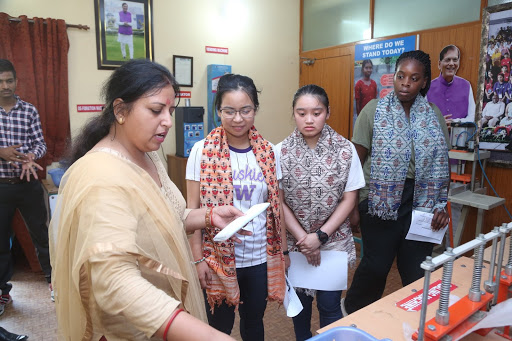
Public Health and Community Medicine in Delhi, India
Dates:
- 2-week option: August 29, 2020 - September 12, 2020
- 3-week option: August 29, 2020 - September 19, 2020
Note: Dates do not include travel time to and from destination.
India is the world’s largest democracy and is considered a newly industrialized country. Yet, despite its large workforce and immense growth, India continues to face the challenges of poverty, malnutrition, and inadequate public healthcare. This program takes place in Delhi, India, the second most populous city on the planet. Get a crash course in Indian culture by spending 2 or 3 weeks in Delhi living in a residential neighborhood amongst Indian families. Participants will spend 1-2 days at a several different institutions (examples below) learning about a broad array of topics related to public health and community based education.
Study abroad in Delhi and you will:
- Be placed within public health nongovernmental organizations working to implement social reforms and improve public health outcomes in India with emphasis on the spread of HIV/AIDS, tuberculosis, and management of infectious diseases.
- Learn about key public health challenges facing India such as low rates of immunization, poor sanitation and waste management, and unsafe drinking water.
- Understand the lingering impact of India’s caste system and challenges in implementing public health initiatives within a culturally and linguistically diverse population.
Program Cost: 2 weeks: $1,940; 3 weeks: $2,510.
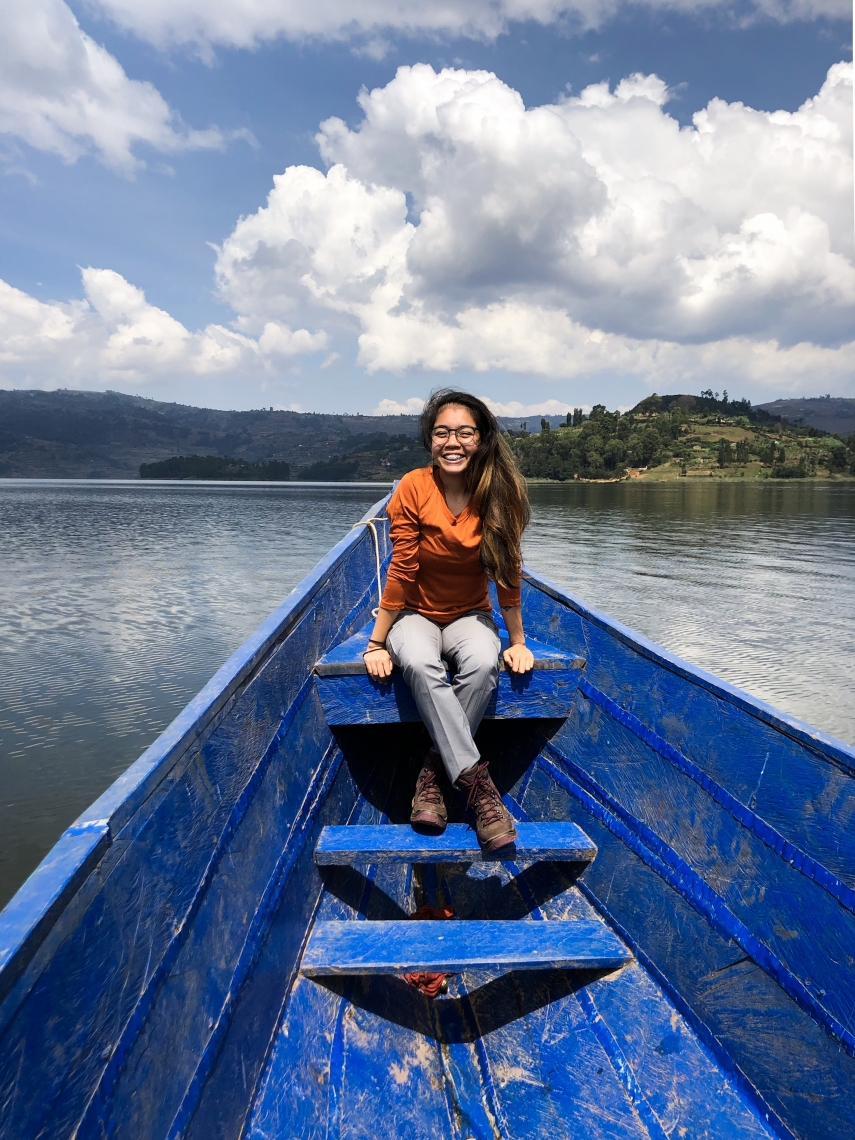
Nutrition, Food Security, and Sustainable Agriculture in Kabale, Uganda
Dates:
- 2-week option: August 29, 2020 - September 12, 2020
- 3-week option: August 29, 2020 - September 19, 2020
Note: Dates do not include travel time to and from destination.
Become a part of the community in Kabale, a town in southwestern Uganda, and learn about their ground-breaking integrated approach to addressing “The Bread Basket Paradox” and improving food security and nutrition. Assist a local nonprofit organization in their efforts to treat and prevent maternal and child malnutrition through education and counseling. Visit local primary and secondary schools and participate in Nutrition Education Outreach using participatory drama and theater. Learn about sustainable agriculture and permaculture with a local social enterprise organization. Participate in workshops with village community groups and explore methods of growing a diversity of foods closer to people’s homes.
Study abroad in Kabale and you will:
- Engage with teams at a Nutrition and Rehabilitation Center who provide impatient re-feeding and rehabilitation for severely malnourished children.
- Learn about sustainable agriculture by visiting farms in the Kigezi region to exchange ideas and help local farmers implement practical solutions.
- Meet with trainers at a Rabbit Breeding & Training Center and learn how rabbit rearing is an effective way to improve protein and B12 intake and generate household income to combat intergenerational poverty.
Program Cost: 2 weeks: $2,190**; 3 weeks: $2,770**.
**Approximate cost, may be less, final cost will be established before the application deadline.
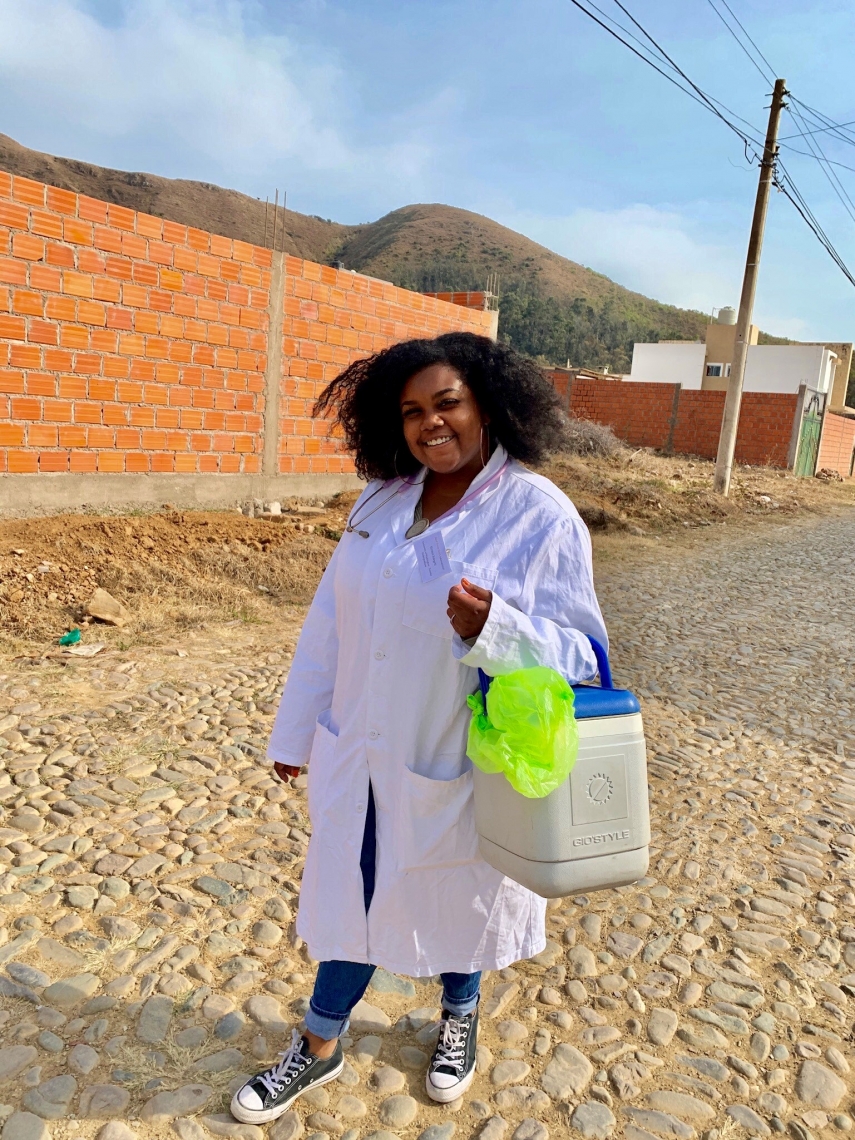
Doing More With Less: Healthcare in Remote Southern Bolivia (Tarija, Bolivia)
Dates:
- 2-week option: August 29, 2020 - September 12, 2020
- 3-week option: August 29, 2020 - September 19, 2020
Note: Dates do not include travel time to and from destination.
Join health professionals and become immersed in Tarija’s healthcare system, including community clinics, secondary and tertiary level hospitals, and a leading clinic for the treatment of Chagas Disease. This picturesque region is known as the “Bolivian Andalucia” for its vineyards and Spanish cultural influence. Tarija offers universal health insurance, which can create high demand for services and strains on the system due to lack of personnel and equipment. Understand cultural and socioeconomic barriers patients face in accessing healthcare services and take part in patient consultations, laboratory analysis, and prevention efforts in surrounding communities.
Study abroad in Tarija and you will:
- Rotate with local physicians through specialties including pediatrics, surgery, cardiology and internal medicine in a regional teaching hospital.
- Become immersed in Bolivian culture and language through conversational and medical Spanish classes while living with a local family in Tarija.
- Witness treatments for pathologies not commonly seen in North America, including parasitosis, tuberculosis, and Chagas.
Program Cost: 2 weeks: $1,940; 3 weeks: $2,370.
Academic Content:
Context for Global Health Experiential Learning: TBIOMD 490 (1 credit)
Global Health Experiential Learning Program: TBIOMD 491 (2-3 credits)
Participants will be required to successfully complete TBIOMD 490, an on-campus pre-departure course that will provide background in the field of global health and prepare students to gain maximum benefit from their CFHI global health experiential learning program (GHELP). The 1-credit TBIOMD 490 course will meet in person once a week for one quarter during the academic year before students engage in a two-week (or longer) GHELP in September, fulfilling the TBIOMD 491 sequence. Together, the TBIOMD 490-491 sequence (3-4 credits) may fulfill a student’s Biomedical Sciences or Environmental Sustainability capstone requirement.
Steps students take to receive UW academic credit:
- Apply to the CFHI program of your choice through the UW Tacoma study abroad website before February 15. Click on the "Apply Now" button on the top of this page to begin your application.
- After February 15 you will receive instructions from UW Tacoma about applying directly to CFHI. DO NOT APPLY TO CFHI BEFORE YOU ARE GIVEN INSTRUCTIONS FROM UW TACOMA.
- Once CFHI has accepted you to the program, please email your proof of acceptance to the Office of Global Affairs at UW Tacoma [uwtintl@uw.edu] and to Dr. Erica Cline [ecline@uw.edu].
Payment Schedule
|
Amount |
Due |
|
|---|---|---|
|
Administrative fee |
$350 |
October 9, 2020 |
|
Tuition for TBIOMD 490 class (spring quarter) |
|
|
|
Program fee |
variable |
October 9, 2020 |
Method of Payment: the administrative fee and program fee will added to your MyUW student account on October 9, 2020.
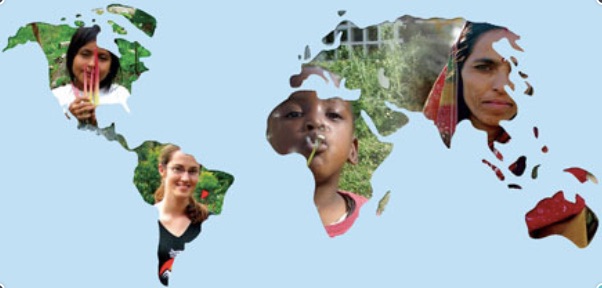
Orientation
To be eligible to study abroad, all program participants must attend an online pre-departure orientation facilitated by the Office of Global Affairs. Participants are also required to attend an in-person pre-departure orientation facilitated by the Office of Global Affairs/UW Study Abroad as well as your CFHI program-specific orientation. Orientation must be completed prior to the enrollment deadline for the quarter that you are studying abroad.
Withdrawals
The $450 UW Study Abroad Administrative Fees are non-refundable once a contract has been submitted. Students withdrawing from a program are responsible for paying a percentage of the program fee depending on the date of withdrawal. More details about the withdrawal policy are included in your payment contract. No part of the program fee is refundable once the program has begun (please refer to Emergency Withdrawal information below, if applicable). The date of withdrawal is considered the business day a withdrawal form is received by the Office of Global Affairs. Notice of withdrawal from the program must be made in writing by completing the following steps:
Please email uwtintl@uw.edu and copy your program director(s) providing notice that you will no longer be participating in the program. You will also need to respond to any further communication from the Office of Global Affairs to finalize your withdrawal.
Emergency Withdrawal
If you cannot participate in a study abroad program, you may submit an Emergency Withdrawal Petition. If granted, the Emergency Withdrawal may allow for partial relief from your financial obligations to the program.
An Emergency Withdrawal Petition may be submitted in the following circumstances:
- Unanticipated change in financial situation
- Medical emergency
- Death in immediate family
- Active military duty
- Unusual or extenuating circumstances
To submit an Emergency Withdrawal Petition, complete this form and email it to uwtintl@uw.edu.
Financial Aid and Scholarships
- A large percentage of UW students utilize financial aid to study abroad. Most types of financial aid can be applied to study abroad fees.
- For UW Tacoma students, you can submit a revision request to increase the amount of aid for the quarter you are studying abroad. These additional funds are usually awarded in the form of loans. To apply, fill out a revision request form, attach the budget sheet for you program (please email uwtintl@uw.edu to request a budget sheet for your program) and submit these documents to the UW Tacoma Office of Financial Aid.
- For UW Seattle or Bothell Students, you can apply by filling out a revision request form, attach the budget sheet (please email uwtintl@uw.edu to request a budget sheet for your program) and submit these documents to the Office of Financial Aid.
- Consult the Financial Aid section of our website for more information on applying for financial aid, special considerations for summer and early fall programs, and budgeting and fundraising tips
- Please also review this list of scholarships: these are opportunities that can help fund your study abroad experience. Please note that many of them have deadlines before your study abroad application is due. For help with the application process, please contact uwtintl@uw.edu.
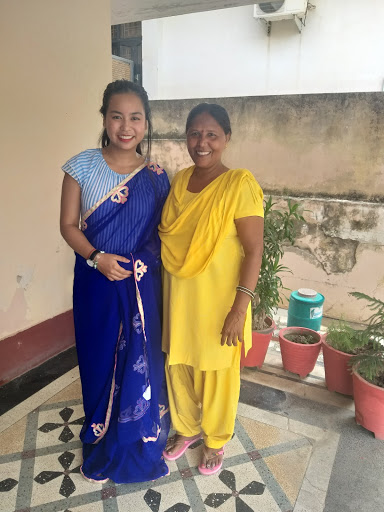
Budgeting Tools
We understand that figuring out your finances for study abroad can be complicated, and we are here to help. Here are some ways to find additional support:
- Email uwtintl@uw.edu to request a budget sheet. The budget sheet will allow you to view the estimated budget of all expenses for this program.
- UW Tacoma students can attend a How to Fund Your Study Abroad event - more information is on the Events page of our website.
Travel Documents and Insurance
All program participants must have a valid passport in order to travel abroad.
Visas
Child Family Health International will guide students through visa processes. You can research visa requirements by calling the consular offices of countries to where you will be travelling or visiting the following website: http://travel.state.gov/content/passports/english/country.html.
The cost and requirements for obtaining visas vary. It is your responsibility to determine visa requirements for all countries you plan to visit while abroad including countries that you plan to visit before or after your study abroad program. This is an especially important consideration if you are planning to do more than one study abroad program.
Insurance
The University of Washington requires students engaged in educational activities abroad – including study, research, internships or community engagement – to purchase UW Student Abroad Insurance. If you are a current UW student, you are required to purchase coverage UW Student Abroad Insurance. Details are on the UW Study Abroad Insurance page.
Changes in Costs or Scope of the Program
In the event of significant devaluations of the dollar, some adjustments to program activities may be necessary. If there are any political events that might compromise the safety of the participants, a rescheduling or cancellation of the program may be necessary. If such changes occur, students will be notified of the changes and options will be presented.
Program Cancellation
If viable enrollment is not reached by (Date TBD), individual programs may be cancelled. Participants will be given the opportunity to switch to one of the other programs.
Equal Opportunity and Disability Accommodations
The University of Washington is committed to providing access and reasonable accommodation in its services, programs, activities, and education for individuals with disabilities. To request disability accommodation for this program, contact Disability Resources for Students at least 8 weeks in advance of your departure date. Contact info at tacoma.uw.edu/drs.
